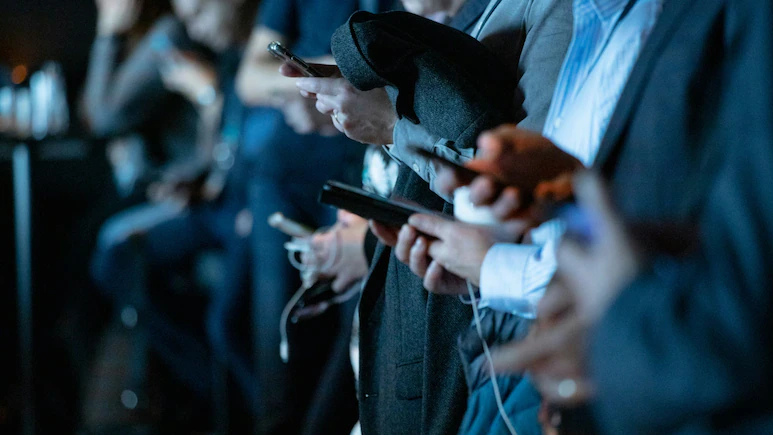New Findings Reveal How Our Beliefs Drive the Sharing of Fake News
A recent study conducted by researchers at the University of Southern California has unveiled the profound impact of personal values on social media behaviors, specifically how they affect the spread of misinformation. This groundbreaking research highlights the role of our moral beliefs in determining which news stories, true or false, we choose to share on social platforms. The study, published in the Journal of Experimental Psychology: General, sheds light on a critical issue in the digital age where misinformation can spread like wildfire.
The research team, led by Suhaib Abdurahman, aimed to explore the relationship between individual moral values and the propensity to share particular news articles. They categorized these values into two distinct categories: individualizing values—often linked with a liberal mindset, such as caring for others and promoting equality—and binding values, typically associated with conservative beliefs, including loyalty, patriotism, and authority. By creating manipulated social media posts that framed links to news articles through these value lenses, researchers were able to gauge participants’ willingness to share the content.
The study revealed a compelling phenomenon: the degree to which a post’s values matched the participants’ own significantly influenced their sharing behavior. This was especially true for misinformation, demonstrating that when users encounter posts that resonate with their personal beliefs, they are less likely to engage in critical evaluation. Instead, individuals seem to share content spontaneously, often bypassing analytical thinking altogether, which has important implications for the spread of false information on social media.
Understanding the Mechanics Behind Misinformation Sharing
The findings indicate that many social media users may be unwittingly contributing to the dissemination of fake news. Participants in the study were not engaging in additional deliberation or analytical thinking when deciding to share articles that aligned with their values; they merely leaned towards sharing them. This suggests that individuals can become conduits for misinformation simply because of their personal beliefs, rather than a deliberate intent to mislead others.
To substantiate their findings, the researchers analyzed real Twitter postings and classified users based on their perceived political leanings—liberal or conservative. By employing machine learning techniques, they examined the presence of binding, individualizing, or neutral values within the content being shared. The analysis mirrored the experimental results, affirming that value alignment significantly drives sharing behaviors without regard for the veracity of the information itself.
This begs the question: how do our beliefs distort our perception of truth? As per the report by Science Direct, cognitive biases often come into play, causing individuals to gravitate toward information that confirms their preexisting beliefs. In a world saturated with content, the tendency to share information that aligns with our moral framework further exacerbates the spread of misinformation.
The Implications for Social Media Users and Society
The implications of this research are significant, not only for social media users but for society as a whole. In an era where misinformation can influence public opinion and sway elections, understanding how personal values impact our sharing habits is essential. The study serves as a reminder of the importance of critical thinking and the need for users to approach information with skepticism, regardless of how personally aligned it may appear.
Moreover, social media platforms themselves have a responsibility to combat misinformation and facilitate the sharing of credible information. By implementing more sophisticated algorithms that account for user biases and promoting content that encourages critical thinking, these platforms can play a pivotal role in reducing the spread of fake news. The responsibility does not solely lie with individual users; it is a collective effort that requires engagement from all stakeholders involved.
As users, we must acknowledge our role in the information ecosystem and strive to be more discerning about the content we promote. It’s essential to question not only the accuracy of what we share but also to consider the motivations behind the information and its potential impact on society. Engaging with diverse perspectives and challenging our biases can foster a more informed and responsible online community.
In addition to being vigilant about our own sharing habits, researchers and psychologists suggest that our education systems should adapt to focus on media literacy. By equipping individuals with the tools to critically analyze content and recognize the influence of personal values, we can begin to mitigate the effects of misinformation in the long run.
A Call to Action for Informed Sharing
This study illuminates a vital aspect of our online behavior that has far-reaching consequences. As we navigate the complexities of the digital landscape, it is crucial to remain aware of how our beliefs inform our actions. By fostering a culture of critical engagement and supporting initiatives that promote media literacy, we can combat the scourge of misinformation and encourage more thoughtful sharing practices.
For those eager to learn more about the interplay between values, misinformation, and social media behavior, further reading is available in articles such as “How Our Values Shape Our Shared Information” and “The Role of Media in Misinformation.” These resources offer insights that complement the findings of the current study and can empower users to develop more informed sharing practices.
In summary, the study conducted by researchers at the University of Southern California reveals the intricate link between personal values and sharing behaviors on social media, providing a critical perspective on the dynamics of misinformation. As individuals, it is imperative that we acknowledge our biases and strive for informed sharing, while collectively working towards a more responsible digital landscape.
DISCLAIMER
We have taken every measure to ensure that the information in this article and on our social media platforms is accurate, verified, and obtained from reliable sources. For feedback or complaints, please contact us at info@hamslive.com.


